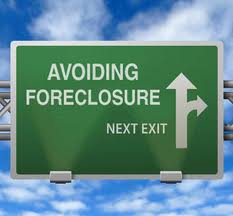 Short Sale Information for Dummies: A Beginner Real Estate Seller’s Guide
Short Sale Information for Dummies: A Beginner Real Estate Seller’s Guide
As someone who’s only starting to learn the ropes of selling real estate, you should get acquainted with all types of transactions related to this type of industry. This article will focus on short sale information and handy tips regarding how to go about it.
First things first; what is a short sale?
A Short Sale in real estate terms refers to a transaction wherein the seller is unable to completely pay off the property’s debts and obligations, and then sells it for less than what is needed to settle the liabilities encumbering it. In a Short Sale, the lenders for the seller’s property may or may not agree to relieve the seller from his or her full liabilities after he or she is given less than what is owed.
You should know that a Short Sale is a complex transaction that may involve certain legal and financial risks, especially if you are not yet familiar with all short sale information necessary to complete it successfully. Here are a few things you ought to know about:
Short sale information #1:
The lender may agree to the sale, but this doesn’t necessarily mean you are relieved of liabilities to them and/or any other parties to your mortgage. You still have the obligation to settle the deficiency after the short sale is completed. You might still be required to settle the deficiency as a personal obligation after the short sale is completed. You ought to clarify this before you close the sale. Seek legal counsel in knowing the terms of you and your lender’s agreement.
Short sale information #2:
Short sales may result in a higher tax obligation especially if your debt forgiveness is categorized as taxable income. You should know that there is an exemption to the cancelled debt that may be charged with taxes, particularly those used to improve, build or buy a property. It would be wise to do your research on the Tax Relief Act and seek professional advice on these matters.
Short sale information #3:
A Home Affordable Foreclosure Alternative (HAFA) Program is available as an alternative for foreclosure. This includes a financial incentive for homeowners who are successful in completing a Short Sale. A HAFA transaction also means zero deficiency, so you no longer have to pay off any debt after a transaction. To know if your Short Sale qualifies for a HAFA transaction, you may seek professional advice or go to the HAFA program’s official website.
Short sale information #4:
Lenders may not agree to a Short Sale if they find out that you have enough funds available to pay off the deficiency that will result from the sale. If you really wish to complete a Short Sale transaction, you must be aware of its documentation and eligibility requirements. This generally means having to prove that your current financial situation prevents you from completely paying off the loan.
Short sale information #5:
Lenders may not agree to a Short Sale if they determine that the property’s Fair Market Value is way more than what they are being offered after the transaction. You must be able to prove that the property’s appraised value is actually worth less or at least close to the sale cost plus the unpaid loan balance.
Short sale information #6:
A Short Sale will affect your credit score, depending on certain factors such as late and missed payments. Because lenders usually only agree to a Short Sale if your credit report shows that your mortgage payments are problematic, some people intentionally miss their payment just to qualify for a Short Sale. When your credit score is affected by this, you will eventually have more trouble convincing another lender to loan you money so you can purchase another home.
Remember that real property investing is a very tricky and complicated business that requires knowledge and skills. Even if you feel you are equipped with enough short sale information to complete a transaction, it would still be best for you to make the wise and prudent decision of seeking the help and advice of experts who know the ins and outs of these transactions.







